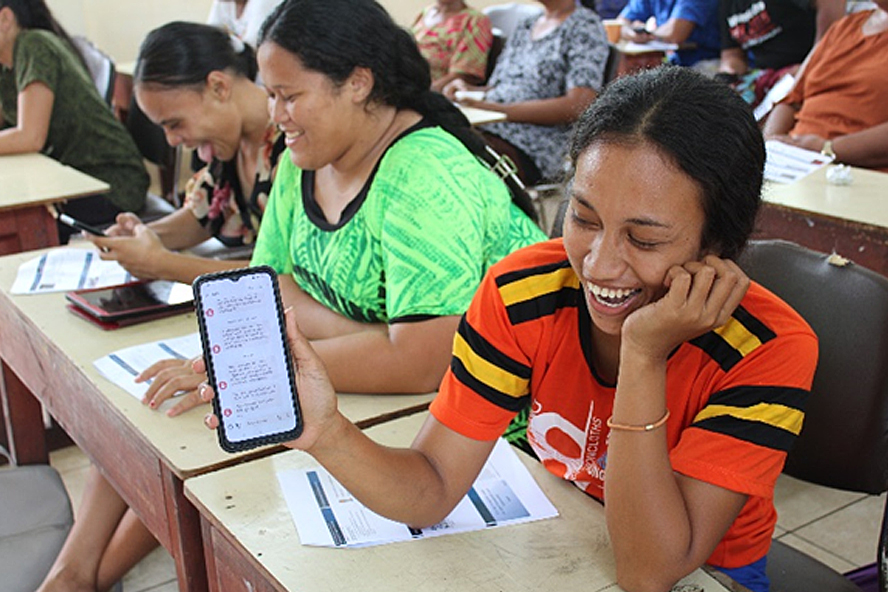
Smart Seas project for Caribbean Small-Scale Fishers
Smart Seas project for Caribbean Small-Scale Fishers (Barbados, Grenada, St. Vincent and the Grenadines, Trinidad and Tobago)
The Smart Seas Toolkit for Disaster Resilience (“Smart Seas”) Project is a collaborative initiative led by ITU-D in partnership with the Telecommunications Authority of Trinidad and Tobago (TATT) and the Caribbean Telecommunications Union (CTU). The project is designed to address the vulnerabilities faced by small-scale fishers (SSF), who constitute more than 90% of the Caribbean’s capture fisheries fleet. These fishers play a crucial role in the region’s economy and food security but are highly exposed to hazards at sea, such as tropical storms and piracy.
The primary objective of the Smart Seas Project is to enhance the safety of Caribbean SSF by improving communications at sea. The project focuses on the development of the Smart Seas Toolkit, which includes resources aimed at reinforcing the maritime communications ecosystem. Specifically, the toolkit addresses compliance with UN regulations, enhances VHF radio capacity, and strengthens the overall maritime communications infrastructure. By doing so, the project aims to preserve the lives of SSF and ensure a consistent supply of fish to the region.
The Smart Seas Toolkit outlines comprehensive measures to mitigate the challenges faced by Caribbean SSF. It targets three key areas within the maritime communications ecosystem. First, it aids regulators, policy-makers, and maritime administrations in aligning national provisions for maritime communications with UN conventions. Second, it enhances operations by developing data collection systems, data products, and communication-related resources for SSF and limited coast stations. Third, the toolkit facilitates capacity building by providing radio curricula to improve the knowledge and skills for using VHF-DSC radios among SSF and limited coast stations.
In collaboration with the Telecommunications Authority of Trinidad and Tobago (TATT) and the Caribbean Telecommunications Union (CTU), the ITU-D spearheads the Smart Seas Project. The four beneficiary countries are Barbados, Grenada, St. Vincent and the Grenadines, as well as Trinidad and Tobago.
“The Smart Seas Project exemplifies ITU’s commitment to leveraging technology for social impact,” said Dr Cosmas Luckyson Zavazava, Director of ITU’s Telecommunication Development Bureau. “By enhancing maritime communications and safety for Caribbean small-scale fishers, we aim to not only save lives but also secure the livelihoods of those who play a crucial role in the region’s economy and food security. It underscores ITU’s commitment to its global connectivity mission, ensuring that no one is left behind.”
A workshop, ‘Setting Priorities for Accessible Communications@Sea solutions for Small-scale Fishers’, will be held in Trinidad and Tobago from 11 – 12 March. For all other upcoming events related to the Smart Seas project, please click here.
This is an ITU Development #DigitalImpactUnlocked story
About the project
Project number: 9RLA21019
Project title: Smart Seas Toolkit (SST) for Disaster Resilience
Description: This project sets out to preserve the lives of highly vulnerable small-scale fishermen in the Caribbean through improved emergency communications at sea. It analyses gaps in, and produces a toolkit to guide the strengthening of, national provisions under UN Safety of Life at Sea (SOLAS) and Search and Rescue (SAR) Conventions (2004 , 1979 ); and international Radio Regulations (RRs 2020 ). It does so in the particular context of FAO /ILO /IMO safety recommendations (2012 ) applicable to small-scale fishermen. The project operates within regional frameworks for harmonization as well as international frameworks for emergency communications. Its outputs will benefit all Caribbean Member States of the International Telecommunication Union (ITU) but in the first instance it is instantiated in Trinidad and Tobago, the Maritime Rescue Coordination Centre (MRCC) for four Caribbean countries, in anticipation of the establishment of that country’s inaugural national maritime authority. The project will also facilitate a global partnership to report on technological, service and market innovations to address the perennial problem of accessible emergency communications for small-scale fishermen. It sets the stage for subsequent phases which will provide direct assistance to other Caribbean countries, introduce a certification scheme for maritime band very high frequency (VHF) operation and build related digital literacy skills of small-scale fishermen. A subsequent phase will also extend communications beyond voice to the use of innovative communication technologies to fill gaps in marine data necessary for resilience building through all stages of the disaster risk management cycle: mitigation, preparation, response and recovery.
Visit the project page for more details.


